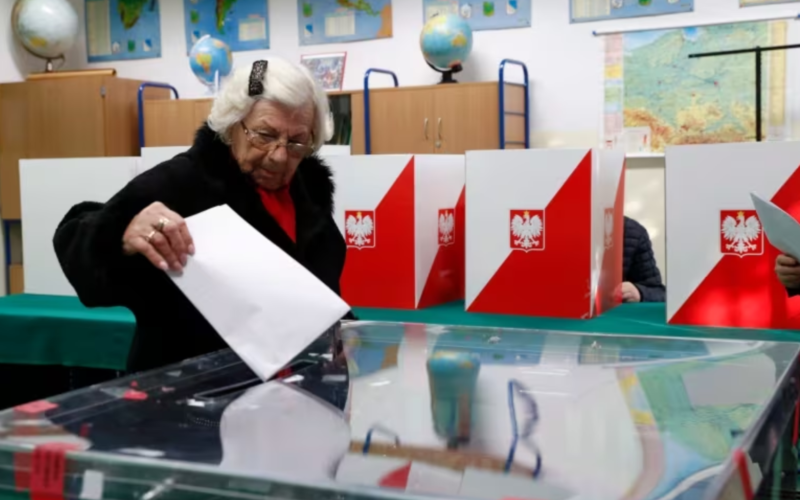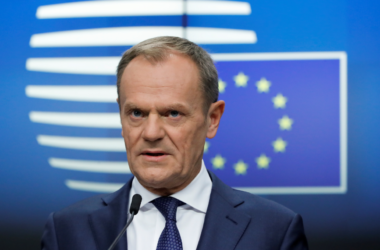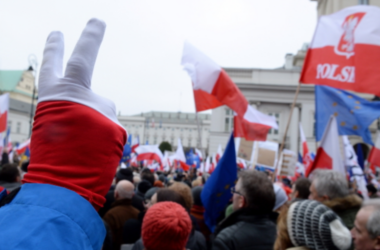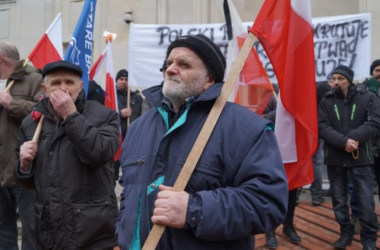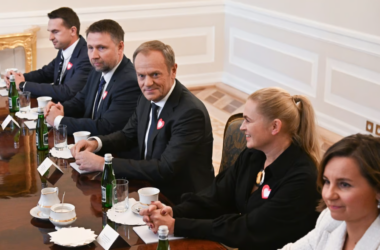Leading Polish candidates are preparing to face off in a crucial debate just six days before the country goes to the polls for what many believe is the most significant election since the fall of communism. In Poland’s post-1989 democratic history, debates have played a pivotal role in shaping the destinies of candidates, adding a sense of anticipation to the upcoming showdown.
The ruling conservative Law and Justice party currently leads in the polls, boasting approximately 35% support. However, it faces the risk of losing its parliamentary majority. Its closest competitor, the Civic Coalition led by Donald Tusk, is nipping at its heels, gaining momentum in recent times. While the Civic Coalition and two other opposition groups collectively enjoy greater support than the ruling party, their disunity weakens their position. Even minor shifts in the performance of smaller parties could potentially tip the balance.
This crucial debate will be broadcast on public broadcaster TVP, commencing at 6:30 p.m. (1630 GMT). Under Polish law, TVP is mandated to host such debates. Since coming to power in 2015, the Law and Justice Party has frequently employed TVP as a platform to promote its policies and vilify the opposition, particularly Donald Tusk.
For Tusk, this debate presents a rare opportunity to connect with undecided voters and even Law and Justice supporters through state media channels. However, notable by his absence from the debate lineup is Jaroslaw Kaczynski, the de facto leader of the ruling party, who delegated Prime Minister Mateusz Morawiecki to represent their party.
Tusk and his allies have accused Kaczynski’s party of undermining Poland’s democratic foundations by exerting control over the judiciary and public media, potentially leading the country toward an exit from the European Union. Law and Justice counters these claims, emphasizing its commitment to EU membership and highlighting its efforts to bolster national security, such as erecting a border wall with Belarus to deter migrant crossings.
Political observers suggest that Tusk stands to benefit merely by participating in a forum that may be hostile to him but favorable to Kaczynski. Tusk recently taunted Kaczynski for his perceived reluctance to engage in a debate.
In 2007, a debate between Tusk and Kaczynski significantly influenced that year’s parliamentary election. Tusk’s ability to connect with everyday citizens, understanding the prices of basic goods when Kaczynski did not, played a pivotal role. Tusk’s down-to-earth demeanor and invitation to call him “Donek,” the diminutive of Donald, resonated with voters, leading to his Civic Platform party’s victory and eight years of governance.
Other participants in the upcoming debate include Szymon Holownia, leader of a centrist-agrarian coalition; Joanna Scheuring-Wielgus, a left-wing lawmaker representing her Left party; and Krzysztof Bosak, co-leader of the far-right Confederation party.
It’s important to note that TVP is setting the debate’s conditions in a manner that appears favorable to the Law and Justice party, adding an additional layer of complexity to this high-stakes political showdown.




